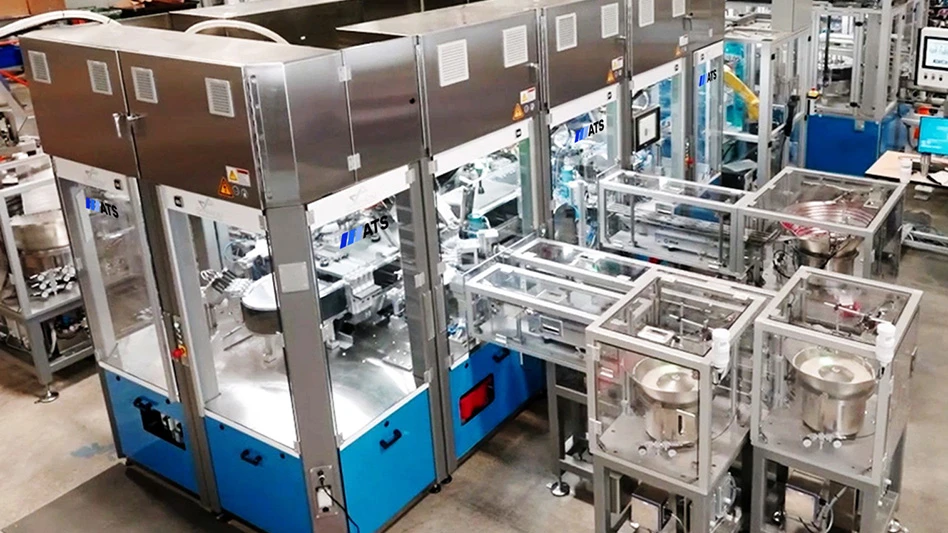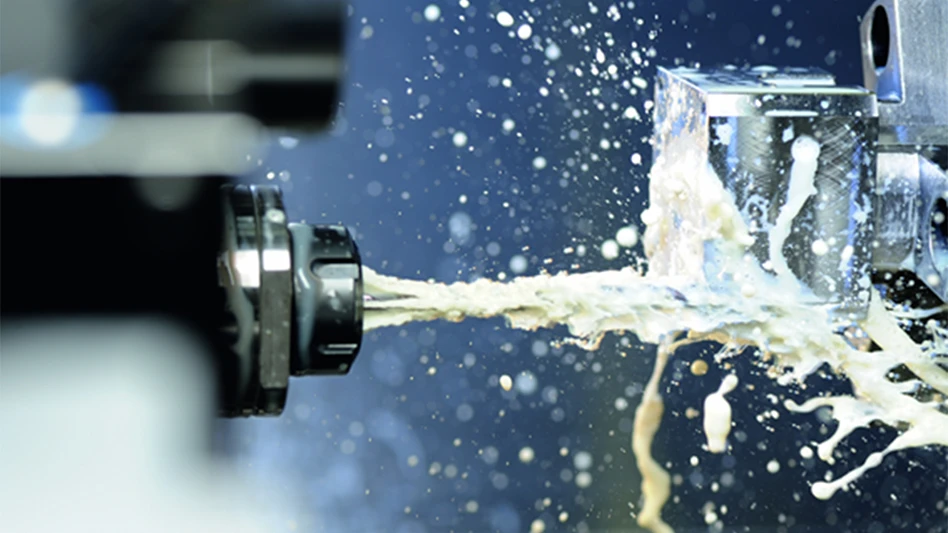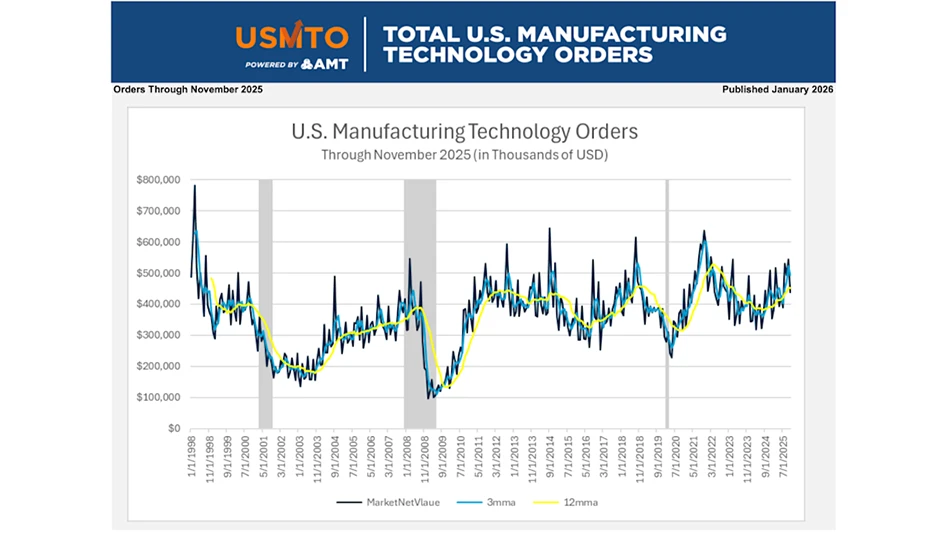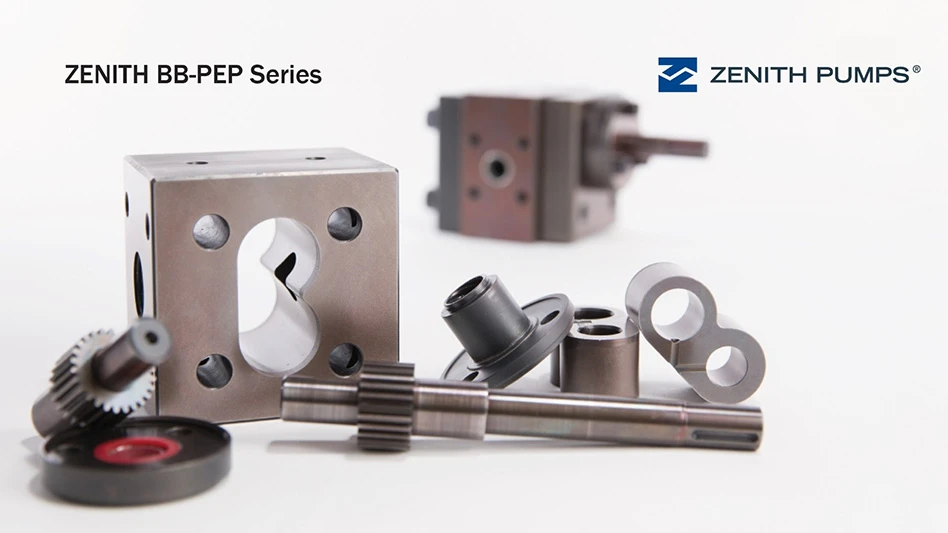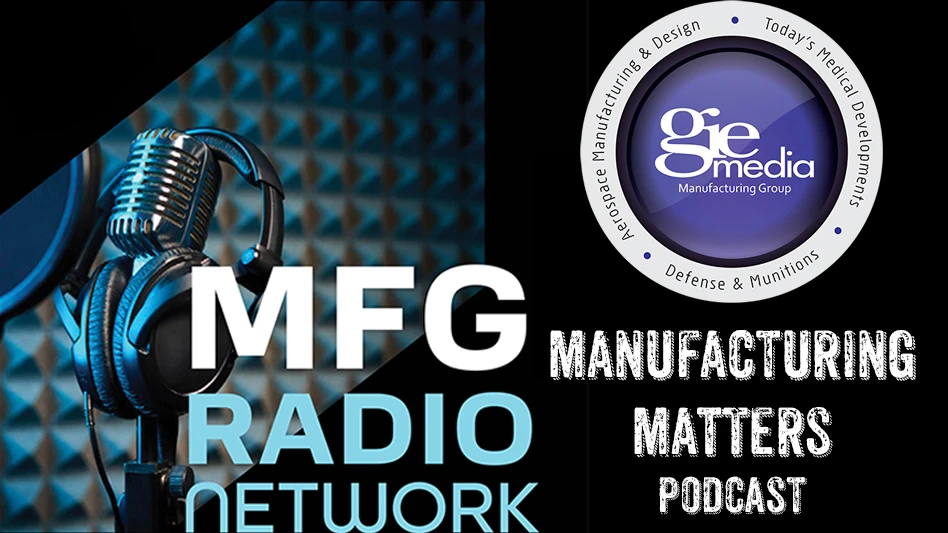
CREDIT: ADOBESTOCK_1294453922
When medical professionals and device designers think of titanium, the word strength often comes to mind. But in the world of surgical applications, titanium’s benefits go far beyond mechanical robustness. Its remarkable biocompatibility has made it one of the most valuable materials in modern medicine, especially for implants and surgical tools that demand safe, long-term interaction with the human body. Goals in medical design and manufacturing are centered around understanding what sets titanium apart and how it can lead to better outcomes, fewer complications, and a more streamlined path from concept to clinical success.
The case for titanium: More than just a tough metal
Titanium’s rise in medical applications isn’t simply due to its strength-to-weight ratio though it is known for its strength and light weight. It’s the metal’s interaction with the human body that has truly driven its adoption in surgical contexts. Titanium products are now found in everything from orthopedic implants and spinal fixation systems to dental implants and surgical instruments.
Why? Titanium offers a rare combination of being both biologically inert and actively supportive of healing processes. It doesn’t just not harm tissue; it often helps the body heal and integrate better. Titanium continues to lead the charge in biocompatible device design for these reasons and more:
- Lightweight and strong
- Highly resistant to corrosion
- Promotes osseointegration
- MRI and imaging safe
- Nontoxic and hypoallergenic
- Long lifecycle with minimal degradation
Why titanium excels in biocompatibility
Titanium is more than just strong – it works with the human body in ways that few materials can match. Its biocompatibility comes from a combination of unique properties that make it ideal for long-term surgical use. Here’s how:
- Natural oxide barrier – When titanium comes into contact with oxygen, it instantly forms a thin titanium dioxide layer. This passive barrier resists corrosion and prevents ion release, protecting surrounding tissue from irritation and inflammation.
- Low immune response – Titanium is biologically inert. Unlike some metals that trigger allergic or immune reactions, titanium blends into its biological environment with minimal disruption. This reduces the chance of rejection and improves patient tolerance across a broad population.
- Promotes cell adhesion – The surface of titanium, especially when treated or textured, supports the adhesion and growth of bone and soft tissue cells. This is critical for implants, where tight biological integration can prevent movement, infection, or loosening over time.
- Minimizes inflammation – Because titanium does not corrode or degrade easily in the body, it doesn’t introduce reactive elements that lead to chronic inflammation. This reduces post-operative complications and speeds recovery.
- Long-term compatibility – Titanium’s durability and chemical stability ensure that implants made from titanium remain safe and effective for decades. This reliability is key in everything from dental implants to orthopedic hardware.
Osseointegration: Building bonds with bone
One of the most critical factors for long-term surgical success – especially in orthopedics and dental procedures – is how well the implant bonds with surrounding bone. This is where titanium shines even more.
Titanium supports osseointegration, the biological process in which bone tissue grows and attaches directly to the implant surface. This is not just a passive interaction. The surface of titanium, particularly when treated or textured, actively encourages bone cells (osteoblasts) to anchor and proliferate. Over time, the implant becomes part of the skeletal system, increasing stability, load transfer, and long-term viability.
This characteristic makes titanium invaluable in joint replacements, dental fixtures, and spinal implants. For medical manufacturers, designing titanium components with micro-textured or porous surfaces can further enhance this process, improving patient outcomes even in complex or high-load applications.
Corrosion resistance in biological environments
Surgical environments and internal anatomy are chemically aggressive – filled with fluids, enzymes, and electrolytes. Many metals degrade over time under these conditions, leading to structural failure or harmful byproducts leaching into the body.
Titanium, however, maintains its structural integrity thanks to its oxide layer. It is highly resistant to body fluid corrosion, including in areas of high salinity or varying pH, such as in wound environments or near bones. This durability means titanium products can be counted on to perform reliably over decades.
For device manufacturers, this corrosion resistance supports long implant lifespans and reduces the chance of late-stage complications – something regulators and end users value immensely.
Hypoallergenic and safe for long-term use
Another notable advantage of titanium is its hypoallergenic nature. Some patients experience allergic reactions to materials like nickel or cobalt-chromium alloys, which are still common in medical manufacturing. Titanium avoids this issue entirely.
This makes titanium ideal for patients with known sensitivities or in cases where long-term implantation is required – such as joint prosthetics, dental implants, and cardiovascular devices. For medical design teams, this translates into a safer, more universally applicable material with fewer risks across diverse patient populations.
Advances in titanium processing and customization
As manufacturing technologies evolve, so do the opportunities for leveraging titanium in increasingly sophisticated ways. Additive manufacturing (3D printing), for example, now allows the production of patient-specific titanium implants with complex geometries that match individual anatomical requirements.
CNC machining, laser sintering, and surface treatments also allow engineers to fine-tune the mechanical and biological properties of titanium components. Surface roughening, anodizing, and coating technologies can further improve osseointegration or reduce bacterial colonization.
For manufacturers and designers, these tools open the door to innovation, enabling bespoke implants and tools that meet the ever-evolving needs of modern medicine.
Titanium’s role in minimally invasive surgery
Titanium plays a crucial role in the advancement of minimally invasive surgery by offering strength, durability, and compatibility with modern medical imaging. Its unique properties make it ideal for surgical tools and implants.
- High strength-to-weight ratio enables the creation of compact, ergonomic instruments.
- Reduces surgeon fatigue and enhances maneuverability in tight spaces.
- Non-ferromagnetic, making it MRI-safe for postoperative imaging.
Sustainability and supply chain benefits
While often overlooked, titanium also offers advantages from a sustainability and supply chain perspective. It’s more abundant than many assume and can be recycled without loss of performance. For manufacturers seeking to align with environmentally responsible practices, using titanium contributes to long-term sustainability goals.
Additionally, advances in sourcing and processing have made titanium more affordable and accessible than in the past, making it a viable choice even for mid-range medical devices – not just high-end implants.
The future of titanium in surgical design
As research continues into material science and surgical outcomes, titanium’s role is only expected to grow. Its biocompatibility, strength, and adaptability make it one of the most future-proof materials available. From next-gen joint replacements to nanostructured implant surfaces and bioactive coatings, titanium is the backbone of countless innovations in modern healthcare.
For medical design and manufacturing professionals, staying ahead means understanding not just the mechanical properties of titanium, but also its biological impact. Choosing titanium metal products is about more than durability – it’s about enhancing healing, ensuring safety, and improving quality of life.
Latest from Today's Medical Developments
- Hypertherm accepting applications for educational grant program
- Making workholding work for you
- Norman Noble offers medical implant engineering design services
- Lubrizol launches new medical-grade TPU material
- Medical device manufacturers embrace automated quality management
- High-performance hydrophilic coating solution
- Enercon highlights end-to-end electronics capabilities for FDA-regulated medical devices
- SABIC unveils new specialty materials for medical applications

